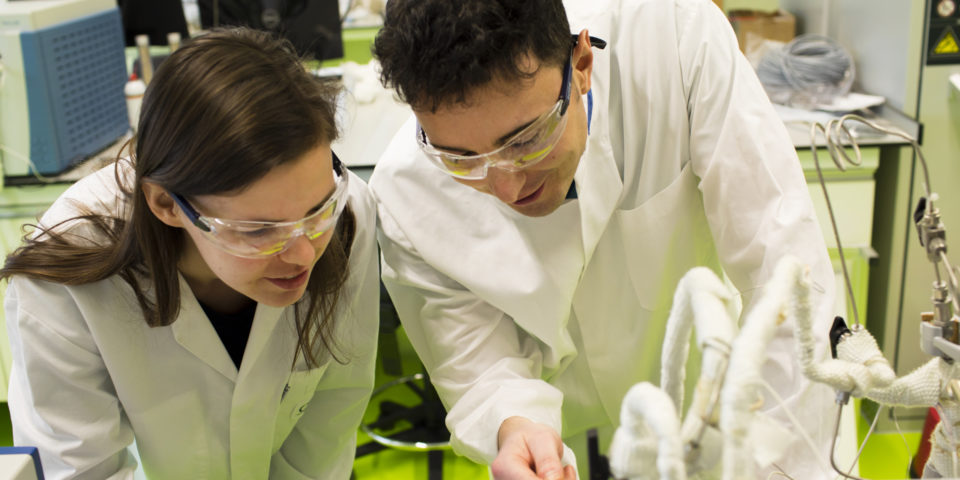Today, the research institute ARC CBBC is opening its first lab in Utrecht. In collaboration with the chemical sector, university researchers will work on fundamentally new principles for the development of current and future energy carriers and materials. “To be able to find really sustainable solutions, we will have to think radically different.”
Reach climate goals 2050
“We want the Netherlands and the rest of the world to reach the climate goals for 2050”, says ARC CBBC’s scientific director Bert Weckhuysen. “The chemical industry doesn’t just want to be part of the problem, but also of the solution. The sector will have to become greener. Since ARC CBBC was founded in 2016, we have set up a number of research lines together, through which this institute will be able to contribute substantially to more sustainable chemical industry.”
Short- and long-term
To have as great an impact as possible, the ARC CBBC research focuses on both the short- and the long-term. Weckhuysen: “Green and circular chemistry is our aim, but it will have to be reached in an economically sound way. We, therefore, want to renew the current chemical processes, making them more energy-efficient and producing less waste. Through fundamental research, which will take longer but have a higher impact, we want to develop totally new processes that are based on non-fossil feedstock. Finally, we are looking for new functionalities: alternative products with interesting application characteristics.”
CO2 as a feedstock
For example, ARC CBBC sees the greenhouse gas carbon dioxide as a potential source for advanced materials and as a carrier of sustainable energy. Weckhuysen: “At the moment, CO2 is just a waste product, emitted in large quantities by, among others, chemical companies. The question is whether this small molecule would really be capable of serving as a new source for plastics and fuels. We would then be using carbon in a circular way, which is essential in order to mitigate the effects of climate change. At ARC CBBC, we are developing totally new processes and catalysts; the particles that make chemical reactions possible. Our new lab in Utrecht has been furnished specifically for this line of research: we can make, characterize and test catalysts.”
Knowledge on coatings
To save energy, ARC CBBC is also looking for fundamentally new insights into the way materials behave. “A second important theme of our research is coatings”, says Weckhuysen. “They are everywhere, as thin layers applied on surfaces. Think of windows that are coated to reflect heat and to prevent them from getting dirty. Until now, we lacked the knowledge about how these
coatings are formed at the nanoscale, and how we can control their formation. A coating can seem
smooth, but be rough-textured at the nanoscale. We are just now beginning to understand
particles to that level. With the right coating, common materials will be able to offer more
functionalities and be protected from weathering. That will soon lead to drastic savings on the use
of materials and energy needed for their production.
Source: website ARC-CBBC

